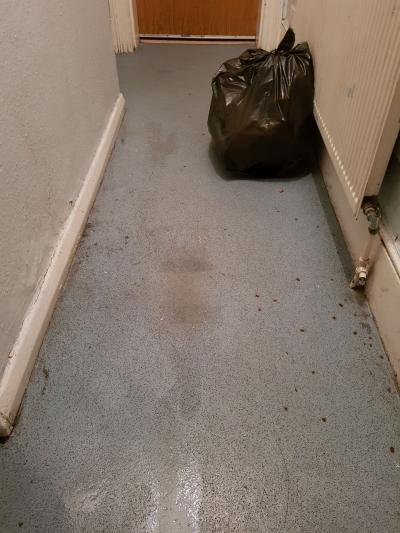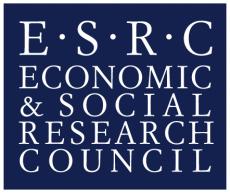28 Days: The Impact of the ‘Move On’ Period for Refugee Mental Health
Posted
Time to read
Guest post by Aileen Voit. Aileen holds a master’s degree in Global Mental Health with a focus on migration and forced displacement. She currently works as a programme assistant supporting migrants in transit in West and Central Africa. Aileen previously volunteered as an integration adviser for the Refugee Council and the Southwark Day Centre for Asylum Seekers in London where she has supported many clients struggling in the transition period from asylum seeker to refugee.
In the UK, once granted refugee status, refugees have to secure housing and financial resources within 28 days, after which time they no longer receive asylum support. As a result of the difficulties in securing accommodation and income in this short time frame, many are threatened with homelessness and destitution. Recent research in to the challenges faced by refugees during this ‘move on’ period found that they can lead to deteriorating mental health and subsequently damage the ability of newly recognised refugees to rebuild their lives in the UK.
NGOs working in the sector as well as the All-Party Parliamentary Group on Refugees, have long raised considerable concern about the 28-day ‘move on’ period and advocate for its amendment. The particular issues of homelessness amongst refugees in the UK has been recognized in a recent debate in the House of Commons. In the recent green paper, ‘Integrated Communities Strategy’, published in March 2018, the government also seemingly took note of this issue, and stated that it would ‘work with civil society and others to increase the integration support available to those recognised as refugees after arrival in the UK.’
However, despite the evidence around the ‘move on’ period and acknowledgements made by the current government, no mention was made of the move on period in the recently published Integrated Communities Action Plan, nor have any policy changes been implemented to date.

All interviewees raised issues of ‘financial instability’, including benefits not being paid on time or appropriately particularly with refugees in Universal Credit areas; the inability to accumulate savings during the asylum process, thus forcing people into the position of poverty and debt; the lack of loans available before the end of the ‘move on’ period, as well as issues with opening bank accounts as many banks do not accept the Biometric Residence Permit as proof of identification. Consensus emerged that once granted status the material situation of refugees is likely to worsen, with predictable negative consequences on refugee’s wellbeing. The process of applying for benefits was described as a re-traumatizing challenge, ‘putting the most vulnerable under extra stress as they have to retell their stories and often are disbelieved.’ As a consequence, many refugees choose not to apply for certain benefits even though they are entitled to them. One interviewee explained ‘Some clients are granted status on the grounds that they are too vulnerable to be returned because their suicide risk is so high. When they apply for benefits, however, Universal Credit deems them capable for work.’
Another interviewee argued that many refugees suffer from considerable mental health issues but that they have not had the opportunity to be assessed by a community mental health team and thus cannot present necessary evidence to be considered a ‘priority’ to be housed. ‘Once ruled that a person is not considered a priority need’, she explained, ‘they are on the street again, a horrific experience which for many lasts between six months to a year.’ Consequently, interviewees see many long-term entrenched rough sleepers with complex mental health problems or learning difficulties that go undiagnosed. Another participant explained that many of their vulnerable clients who become homeless at the end of the 28-days end up in situations where they might be exploited again, outlining that many female refugees become pregnant during periods of homelessness.

The findings suggest that moving from asylum support to employment and mainstream benefits as well as securing accommodation poses a great challenge within the period of 28 days and negatively impact refugees’ mental wellbeing. The mental health of refugees is a critically important issue in global health today. Already a vulnerable population group with elevated risk for developing mental disorders refugees are exposed to further mental health risk factors at the onset of their integration into British society. When they are granted the same legal rights as British citizens, the 28-day ‘move on’ period exacerbates their risk of homelessness and financial instability, preventing them from rebuilding their lives.
Any comments about this post? Get in touch with us! Send us an email, or post a comment here or on Facebook. You can also tweet us.
__________
How to cite this blog post (Harvard style)
Voit, A. (2019) 28 Days: The Impact of the ‘Move On’ Period for Refugee Mental Health. Available at: https://www.law.ox.ac.uk/research-subject-groups/centre-criminology/centreborder-criminologies/blog/2019/05/28-days-impact (Accessed [date])
Share
YOU MAY ALSO BE INTERESTED IN
With the support of








